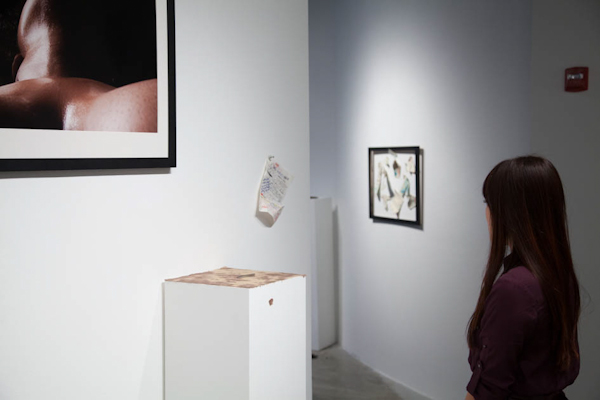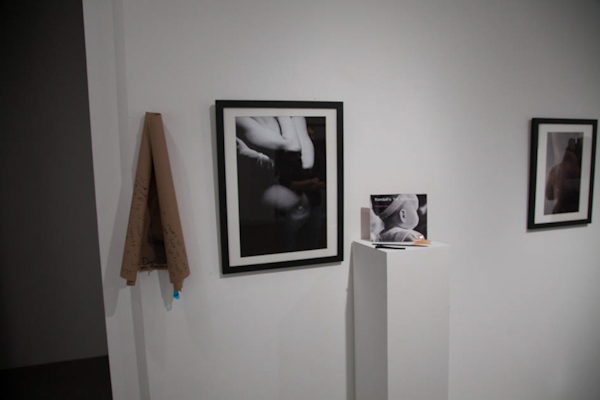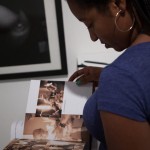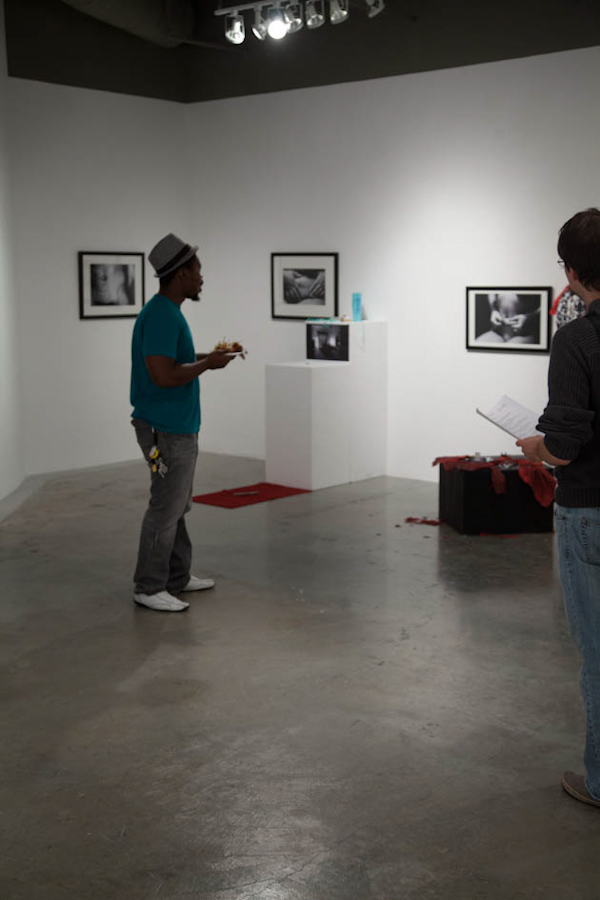Dare to Bare: “Insecurities Collection” by Tai Williams

By: Melody M. Benjamin

Rori-TAI Williams, second-year MFA photography student, is currently presenting her thesis exhibition, “Insecurities Collection.” Her exhibit highlights insecurities from stretch marks, to issues of pregnancy, birthmarks and pubic hair. Each of her subjects appear to be naked. She capitalizes on the vulnerability of nakedness. Williams goes there. She takes us to the brink of our own insecurities by zooming in on the very thing that many photographers try to hide.
Instead of correcting blemishes, she brings attention to them. She admits that the lighting used dares to even enhance the depth of these imperfections. The photographs are raw and intimate. When I share my reaction to the exhibit, Williams said, “Intimate and raw. Yes, that’s exactly how I would describe it.”
All the insecurities are faceless, which allow for the viewer to see themselves and not someone else. That’s the point: to call the viewer to remember their flaws and convince them that they’re actually beautiful. All the photos are also in black and white, which also help to mask race. In some instances, you have no idea who you are looking at, but their flaws are evident.
Scattered about the gallery, Williams strategically places various items related to insecurities. Makeup is broken and smeared. Cocoa-butter lip balm, a dress fitted to a mannequin, a measuring tape and hair clips are among the things she uses to further harp her point.

To further focus the issue of blemish, a projection of various images cascades across the back wall. Some of these photos highlight a caved brow, moles, her own nose and breasts and more skin. Williams made every effort to deny you the comfort of perfection.

Ms. Williams discusses her journey and battle with insecurities. She struggled with her skin for years, but after getting to the root of the issue and balancing her hormones, she has gotten over the hump. She is using her testimony and the battles of others in this innovative installation.
The piece that I could relate to most was “Skinny Fat.” This concept of being skinny, too skinny or just not skinny enough is real. Body image issues don’t discriminate. We all look in the mirror from time to time and wish that this or that were different. Even though we’re seeing more curvaceous women on television and in magazines, we still have a long way to go.
This ode to blemish is a timely jab at the vanity in our society. With fashion models in the forefront, plastic surgery on the rise and advertising always in our ears, “Insecurities Collection” is a dynamic shove back to reality. The reality is that we’re all flawed, and it’s these insecurities that make us beautiful–different from the rest.

























